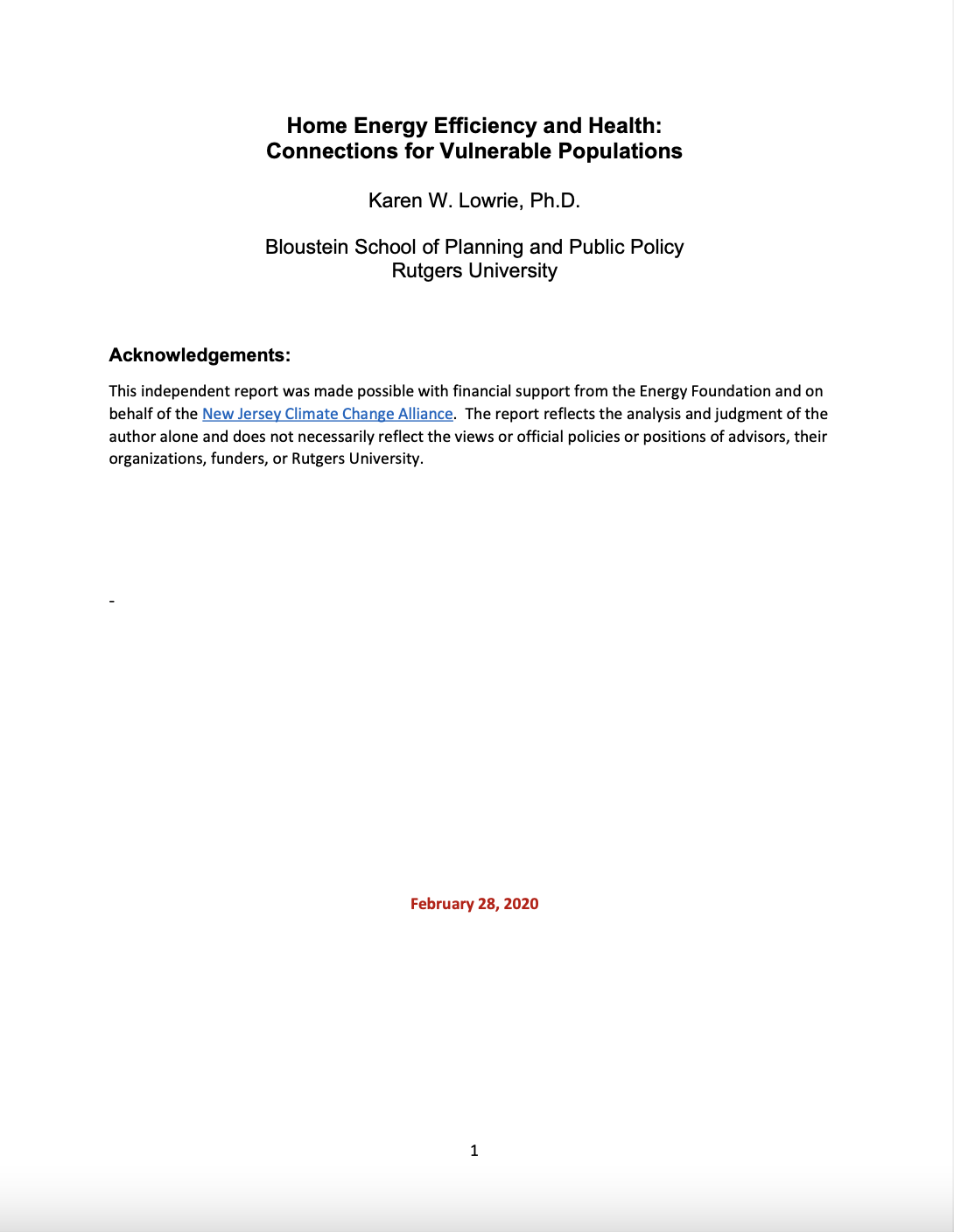Economic, environmental and societal forces contribute substantially to our health – as much as, studies show, or more than genetics, individual behavior and access to healthcare. Examples of these Social Determinants of Health include quality of housing and schools, access to healthy foods, living-wage jobs, transportation mobility, environmental exposures to pollution and other hazards, availability of social support networks and community safety.
Energy, too, is an important social determinant of health including its source, generation, transmission and delivery, mode of use, cost, and associated wastes and emissions. One of the most direct influences on individual and family health is the home environment, so changes that are made to make homes more energy efficient can have direct and indirect impacts on those living in the house. It could be direct, such as whether ventilation is adequate to prevent the buildup of indoor pollutants, or indirect, such as when households pay disproportionate amounts for energy bills which, in turn, may affect the availability of resources to support healthy living such as food, quality housing and healthcare (US DOE, 2018).
Rutgers scholars have been at the forefront of promoting Health in All Policies (HiAP) as a collaborative approach to reducing disparities and improving the health of all communities and people by incorporating health considerations into decision-making across sectors and policy areas.3 In this report, as part of our continuing HiAP efforts in New Jersey, we present highlights related to home energy efficiency from a desktop Health Impact Assessment of New Jersey’s Draft Energy Master Plan (EMP) that we prepared in August of 2019 that offered a “health lens” through which to view some of the potential impacts of implementing elements of the EMP.4 The analysis focuses on health equity, or the concept of equitable access to conditions and resources that allows one to live the healthiest life possible. It pays strong attention to impacts on populations and communities that may already suffer disproportionate health, social, environmental, and economic inequities, which may be exacerbated by proposed home energy efficiency programs.
This brief report is not intended to be comprehensive or exhaustive in its presentation, but rather to summarize some of the recent scientific literature that connects energy efficiency to health, and to present a set of insights informed by these findings. We consider it a start rather than a finish. It scratches the surface of this topic and certainly points to vast opportunities to further explore the ways in which the goals, contents and implementation of policies and programs to improve energy efficiency can influence the health and well-being of New Jersey’s most vulnerable residents.
